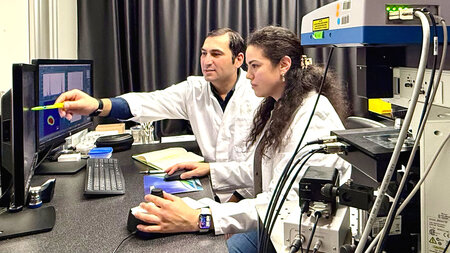Bachelor of Science (B.Sc.) in Psychology
Study guidelines, including SAP and module descriptions from 07/03/2019 - examination guidelines from 07/03/2019 (valid for students starting in winter semester 2019/20
Study guidelines, including SAP and module descriptions from 08/05/2015 - examination guidelines from 08/05/2015 (valid for students starting in winter semester 2015/16
Study guidelines, including SAP and module descriptions from 08/07/2013 - examination guidelines from 08/07/2013 (valid for students starting in winter semester 2013/14)
Study guidelines, including SAP, module descriptions and examination guidelines from 08/18/2010
Detailed information on the program, prerequisites, application and study guidance can be found on the university's web pages for students and applicants.
The program is based on a modular structure. Every module is self-contained with specific goals, contents and teaching methods (lectures, tutorials, etc.). Detailed module descriptions can be found in the study regulations.
Credit points are attained in every module to a total of 180 points. One credit point is equivalent to 30 hours of work (including preparation and revision).
Study segments
1. Basic modules:
- Introduction to Psychology: Themes, professions, skills (Module A)
- Methodology and Statistics (Module B)
- Computerized data processing (Module C)
- General Psychology I (Module D)
- Biological Psychology (Module E)
- Basics of Developmental Psychology (Module F)
- Basics of Personality psychology (Module G)
- Fundamentals and applications of diagnostics (Module H)
- Research Internship (Module I)
- Empirical-Experimental Research (Module J)
- Applied methodological competence (Module K)
- General Psychology II (Module L)
- Social Psychology (Module M)
- Application Specialist 1 - Clinical Psychology I (interference) (Module N)
- Application Specialist 2 - Industrial Psychology (Module O)
- Application Specialist 3 - Educational Psychology (Module P)
- Application Specialist 4 - Foundations of Applied Gerontopsychology (module Q)
- Application Specialist 5 - Organizational Psychology (Module R)
- Application Specialist 6 - Clinical Psychology II (intervention) (Module S)
2. Non-psychological modules:
When elective module, students have the following subjects to choose from.
- Basics of pedagogy (Module T1)
- German studies (Module T2)
- Applied computer science (Module T3)
- Ergonomics for psychologists (Module T4)
- Sociology (Module T5)
- Applied Kinesiology (Module T6)
- English / American studies (Module T7)
- Media Communication / Media usage (Module T8)
- Business Administration (Module T9)
- Political Science (Module T10)




